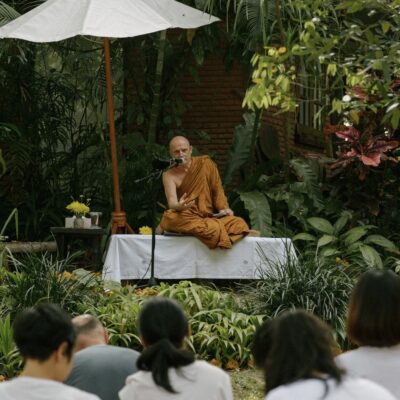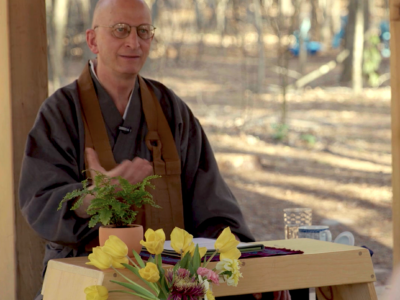Buddhism as an Education System: Takeaways from a Paccaya Foundation Retreat
About This Resource
Details
In these two videos, each under one hour long, Venerable Ajahn Jayasaro discusses how to approach modern education from a Buddhist perspective. He starts with discussing how we can connect with students as they are, like the Buddha always had to adjust his teachings for students. In the second video, he explains how Buddhism can be seen as an educational system. The talks took place at annual contemplative retreats in Chiang Mai, Thailand, organized by Paccaya Foundation. He discusses how precepts and disciplines (sila/shila) can be viewed differently, how meditation is a tool to investigate the mind, and how to view these training as the four-fold layers of development. These concepts are the core pillars for the Buddhist schools for children for which Venerable Jayasaro is the spiritual advisor. The talk addresses education for children as well as the role of a teacher. He speaks about the relationship between faith and wisdom and the importance of effort and concentration. Mindfulness is the fulcrum or balance point that helps keep one following the middle way.
Key takeaways:
- Buddhism is not faith-based belief system, it is an education system
- Buddhism is, the study of mind, that invites investigation (ehipassiko), and critical thinking
- Precepts (sila/shila) are often misunderstood as rigid disciplines but can be viewed from a spiritual perspective as;
- a gift of trust and safety that one can offer to the community of practice, which in turn create a conducive environment for mind-training practice
- objects of mindfulness to reflect upon
- tools to step back from habitual behaviors and getting out of our comfort zone
- offering a sense of safety to those around you
- Cultivating the following four things can result in enlightenment—the attainment of the ultimate peace, unlimited wisdom and compassion.relationship to the material world (body, and other aspects of the material world).
- In an ideal educational system, the effort is to create an atmosphere, an environment, and a curriculum which are in harmony with the Buddhist path to enlightenment, but adapted appropriately to the needs and capacity of school students.





